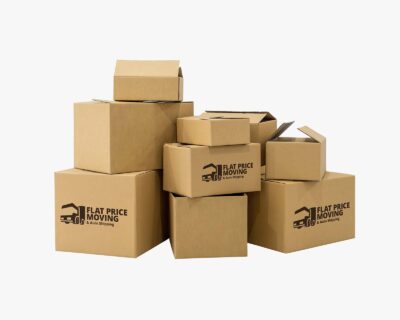Shipping a Car In Winter – Tips for Safe and Efficient Transportation
Prepare for the challenges of cold-weather car shipping with our expert tips and guidance. Winter conditions can be harsh on vehicles, but with the right knowledge and precautions, you can make sure that shipping a car in winter isn’t an issue. Discover key insights to protect the automobile and streamline the relocation experience.

So, what should you know about car shipping in winter? Investing in a reputable car shipping and cross-country moving company is ideal, as they have the experience and equipment needed to navigate cold weather conditions safely. This is vital for avoiding winter road hazards in case you are thinking about driving the vehicle yourself. On top of this, ensure the auto is ready with proper maintenance, including antifreeze levels, tire condition, and battery health. Finally, stay informed about weather forecasts along the route and be flexible with your travel plans to account for unexpected changes in conditions.
Why is Winter Car Shipping Unique?
Winter auto transport presents unique challenges due to the unpredictable nature of road conditions. Transporting cars in icy conditions can be particularly tricky, as snow and ice make roads slippery and reduce visibility. Cross-country movers must exercise caution and adapt their driving strategies to safely navigate through such hazards.
Transportation mistakes, such as not adequately preparing vehicles or underestimating the impact of cold weather, can lead to delays, accidents, or damage to vehicles. Therefore, a thorough understanding of the risks posed by weather conditions and careful planning are essential for successful and safe transit during this challenging season.
How to Prepare Your Car for Winter Shipping?
Preparing the vehicle for cold transport is crucial for ensuring a stress-free process. Winter conditions can be harsh on a four-wheeler, making it more susceptible to damage if not adequately prepared. Taking the time to prepare the car not only safeguards it against the challenges of the entire process but also ensures that the vehicle doesn’t sustain any critical damage.
Antifreeze Check
Car shipping during snowy months demands special attention to the vehicle’s engine, and a key part of this is checking the antifreeze levels. Proper antifreeze levels are essential to prevent the engine from freezing in cold temperatures, which could lead to significant damage.
By ensuring the vehicle has the right antifreeze mixture, you not only protect the engine but also contribute to a smoother and safer journey to a new city or even a new state. This simple step can make a substantial difference in maintaining your vehicle’s health while moving in winter.
Battery Check
Harsh conditions can have a detrimental effect on car batteries, often causing them to weaken or fail. Before handing over the four-wheeler to long-distance movers, it’s crucial to perform battery checks for winter car shipping. A fully charged and well-maintained battery is essential to ensure the automobile starts reliably throughout the journey and the movers don’t have issues with loading and unloading it.
It’s best to check whether all terminals are tight as well as whether there are indications of corrosion. Proper battery care is a small yet critical step that contributes significantly to the success of this endeavor.

Tire Considerations
An important piece of advice for safe vehicle transportation in frost is the use of winter tires. Transporting cars with them offers significant benefits. They provide superior traction on icy and snow-covered roads, reducing the risk of accidents and ensuring smoother journeys for drivers who need to load and unload the four-wheelers.
They are designed with special rubber compounds and tread patterns that excel in low temperatures, offering enhanced grip and handling. While snow chains and specific car carriers can be an additional asset in extreme conditions, equipping the vehicle with winter tires is a proactive and essential step.
Protecting Exterior
When shipping an automobile to another state, ensuring the vehicle’s exterior is well-protected is vital for an efficient move and preserving its appearance. Washing it thoroughly before transportation removes dirt, road salt, and other debris that may have accumulated, reducing the risk of scratches and paint damage during transport.
Protecting the car from winter elements is possible by applying a protective wax layer since it acts as a barrier against environmental factors like rain, snow, and road chemicals. This additional layer of protection safeguards the car’s finish, making it less susceptible to corrosion and ensuring it arrives at its destination in top condition.
Here is a video with numerous details that are important for protecting the cherished four-wheeler during cold months.
Choosing the Right Transportation Options for Winter
Selecting the appropriate option is a critical step. When considering a long-distance moving company for your needs, it’s important to ask questions about the specific challenges and precautions they take for specific conditions. Before delving into transportation costs, understanding the various transportation methods and their suitability is crucial.
Enclosed vs Open Transport
When it comes to shipping a vehicle in cold months, you’ll typically have two options – enclosed and open transport:
- Enclosed transport for snow is an ideal choice. These trailers shield the automobile from the elements, providing a secure environment. While enclosed carriers tend to be more expensive than open carriers, the benefits of enclosed trailers in winter can be well worth the investment.
- Open transport option involves transporting the four-wheeler on an open-air trailer. While it’s generally more cost-effective, there is no protection from outside elements. It is a budget-friendly option and a common choice for many shipments.
Insurance Considerations
It’s imperative to engage in a thorough discussion about winter car transport insurance with the chosen car shipping company. Clarifying the scope of coverage, deductible requirements, and what to expect in case of unexpected incidents during transit is essential for a stress-free experience.
Equally vital is the act of documenting the car’s condition, as this step serves as crucial evidence in case a claim needs to be made. Ensuring that you have a clear understanding of the insurance aspects helps safeguard the investment and provides valuable peace of mind throughout the entire process.

Safety Measures Taken by Reliable Transporters
Reliable transporters prioritize safety, especially when it comes to weather considerations for vehicle shipping. They often employ drivers who undergo specialized training in navigating adverse weather conditions, ensuring they are well-prepared to handle snow, ice, and other challenges.
On top of this, these companies may utilize carriers equipped with specialized equipment designed to safeguard cars during transit. If you opt for the cheapest way to ship an automobile, reputable transporters understand the value of cars and take every measure to ensure their safety throughout the journey. The vehicle’s well-being remains a top priority, giving the client peace of mind during the entire process.
The Cost Implications of Shipping a Car in Winter
The cost of shipping a car in the cold season can be influenced by various factors, including increased demand for services and the challenges associated with harsh conditions. These factors can lead to price fluctuations, potentially resulting in higher costs.
Furthermore, the need for specialized equipment and precautions to navigate ice-covered roads can contribute to elevated expenses. Therefore, it’s advisable to plan the shipment well in advance, either before or after the holiday season, since shipping car during the holiday season might be expensive.

Benefits of Auto Transportation Over Driving in Winter
Opting to ship your vehicle instead of driving presents a range of advantages:
- Safety – Avoid the risks of harsh road conditions and potential accidents,
- Time efficiency – Save valuable time by flying to the destination while the four-wheeler is transported separately,
- Vehicle preservation – Shield it from the harsh effects of salt, snow, and freezing temperatures,
- Cost-effective – Potential savings on fuel, accommodation, and maintenance costs associated with long journeys,
- Peace of mind – Professional transporters are equipped to handle any challenges, ensuring a secure and smooth journey,
- Enclosed trailers – Enjoy the benefits of enclosed trailers in winter. They provide an additional layer of protection against the elements, safeguarding the car’s condition.
Tips for a Smooth Winter Car Shipping Experience
For a seamless auto transport experience, it’s essential to consider various factors. First and foremost, choose a legitimate company that can be found on the Better Business Bureau and that has a USDOT number.
Secondly, communication is key for ensuring you stay informed about weather updates and any potential winter vehicle delivery delays.
Next, flexibility is crucial, as adverse weather conditions can lead to unexpected setbacks. Prepare for these possibilities and remain adaptable throughout the process. When choosing between door-to-door delivery and terminal-to-terminal delivery, bear in mind that opting for spots that are easily accessible even in snowy conditions is ideal.
Additionally, prioritize road salt protection during transport to safeguard the vehicle’s condition. These strategies collectively contribute to a successful and stress-free auto transport endeavor.
Moving Services
Whether you are moving from New York to Los Angeles or from San Francisco to Chicago, we can help you.
Read morePacking Services
Our moving teams are trained to pack your belongings in the most efficient manner possible.
Read moreAuto-Transport
If your first concern is having your vehicle transported safely and efficiently, enclose shipping is the way to go.
Read moreCommon Misconceptions About Shipping a Car in Winter
Common misconceptions often lead individuals to believe that transporting their vehicle during this season is always more expensive and too risky. However, these myths can be dispelled with the right auto transport company.
While this service may have slight cost fluctuations due to weather-related challenges, a reputable company can provide cost-effective solutions. Moreover, with a dependable company, the perceived risks are mitigated through experienced drivers, specialized equipment, and thorough precautions. It’s essential to challenge these misconceptions and trust in the expertise of a trusted transporter to make this process hassle-free.

Reach Out to Us and Get Your Car Safely Delivered to Your New Destination
At Flat Price Auto Transport & Moving company, we’re your go-to solution for all long-distance moving needs, including winter auto transport. We understand the unique challenges that harsh weather can pose to vehicle transportation, and we’re fully equipped to handle them with the utmost care and professionalism. Whether you need the four-wheeler safely delivered to your new destination or require long-distance moving services during cold months, we’ve got you covered. Reach out to us today to receive a quote and experience the peace of mind that comes with working with a trusted partner in the industry.
FAQ
Is It Safe to Ship a Car During the Winter Season?
It can be safely done with the right precautions. Reputable relocation companies are experienced in handling winter conditions and take extra measures to ensure safe transportation. They equip their carriers with specialized tires and maintain them for winter weather, and their drivers are trained to navigate icy roads cautiously.
What Are the Main Challenges of Winter Auto Transport?
The primary challenges include dealing with icy road conditions, potential delays due to snow, and the need for additional precautions to protect the automobile from snow, road salt, and extreme cold temperatures. These challenges can be effectively managed with proper planning and by choosing the right transportation options.
Should I Choose Open or Enclosed Transport?
Enclosed transport is recommended in case preserving the exterior is of the utmost importance. Enclosed carriers provide better protection against the elements, including snow, road salt, and extreme cold. However, this option comes with additional expenses, unlike open carriers.
How Can I Prepare My Vehicle?
Preparing your vehicle for harsh weather conditions is essential. Ensure it is in good working condition, including checking antifreeze levels and tire tread. Clean it thoroughly to protect it from road salt and debris. Remove any personal belongings from the automobile to prevent damage during transit.
What Happens if My Car Experiences Delays Due to Winter Weather?
If your four-wheeler experiences delays due to cold weather, a reputable company will communicate with you about the situation and work diligently to ensure the safe and timely delivery of the auto. They will take necessary precautions to minimize the impact of weather-related delays.
How Do I Choose a Reliable Winter Auto Transport Company?
To choose a reliable company, look for experienced providers with a track record of successfully handling different kinds of shipments. Read customer reviews to gauge their performance and reliability. Additionally, ensure they have proper insurance coverage and offer transparent pricing. It’s also a good practice to ask questions about their specific procedures and preparations to ensure the vehicle’s safe transit.










